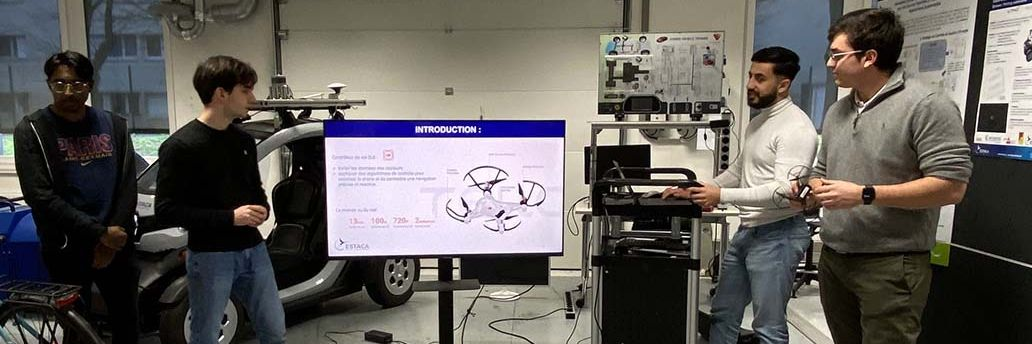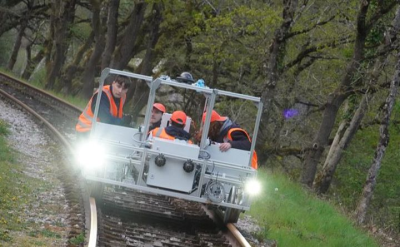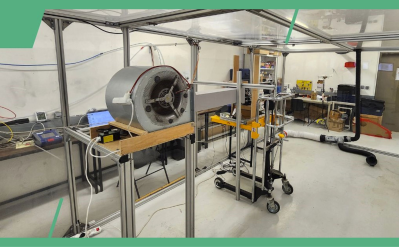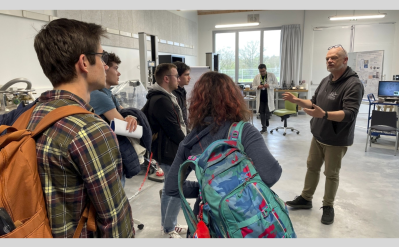News

Apprentice students work on a swarm of autonomous drones
Students in their final year of an engineering apprenticeship presented a project for aswarm of autonomous drones to be used in difficult environments without GPS (fire, earthquake...). An innovative technical challenge.
During their studies, students on apprenticeship engineering courses specializing in vehicles, autonomous and connected systems work on a range of practical projects to put into practice the technical and theoretical skills they have learned in class.
4 final-year students chose to develop an autonomous drone swarm project. The difficulty lies in the fact that the aircraft have to move around in a complex environment, without the landmarks usually transmitted by GPS data.
Explanations from Mehdi MCHAREK, teacher-researcher in charge of the project:
" In our project, we're looking to control a swarm of drones, similar to those used in light shows, but for more complex scenarios. Currently, show drones use precise GPS systems for smooth navigation. However, in challenging environments such as post-earthquake rescue operations or fire response, GPS often proves unusable.
Our aim is to adapt a computer vision-based localization technique inspired by the latest advances in research. This approach relies on the detection and use of visual anchors in the environment to enable UAVs to locate themselves accurately and robustly, even in the absence of GPS signals.
In the second phase of the project, we aim to establish communication between the drones in order to share location information.This collaboration between them will not only improve location accuracy, but also ensure synchronized and robust navigation of all the drones. "
Urim, a student apprentice taking part in the project, explains:
" What I liked about the project was the technical difficulty. The fact that I had to think and work for hours on concrete technical problems. And finding solutions! These few months enabled us to put our technical knowledge into practice, as well as our management and project management skills, which are essential for becoming an engineer. We confronted the difference between theory and real-life implementation, and in the end we were able to define the project's progress and what it taught us, but also what we still need to improve on."
















No comment
Log in to post comment. Log in.